Israeli Military Accuses Iran Of Orchestrating Attacks By Militias
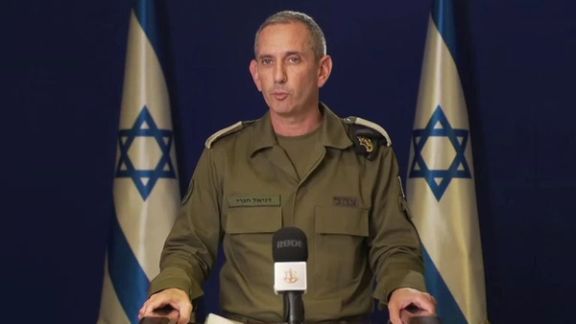
Israel has accused Iran of orchestrating recent attacks carried out by its proxies in Yemen, Iraq, and Lebanon in addition to supporting Hamas' war on Israel.

Israel has accused Iran of orchestrating recent attacks carried out by its proxies in Yemen, Iraq, and Lebanon in addition to supporting Hamas' war on Israel.
Israeli Chief Military Spokesperson Rear Admiral Daniel Hagari said: “Iran supported Hamas before the war directly, in training, in providing weapons, money and technological know-how. Even in these moments, Iranian support to Hamas continues with intelligence assistance alongside incitement on social media and fueling incitement worldwide against the State of Israel," he said.
Clearly naming Iran as the culprit of regional destabilization, he added; "In the Middle East where the Iranian proxies operate from within Iraq, Yemen and Lebanon, the instructions come from only one place — from Iran."
While Tehran continues to deny its hand in the war declared by Hamas on October 7, when thousands of Hamas militants stormed Israel by land, sea and air, massacring at least 1,400 and taking around 220 hostages, Hagari warned: "Whomever destabilizes the Middle East for the actions of the Hamas - ISIS criminals, cannot hide.“
Meanwhile, as Iran's biggest proxy, Hezbollah, continues to increase its attacks on northern Israel from Lebanon, the group announced that its leader in Lebanon, Sayyed Hassan Nasrallah, held discussions with top leaders of Palestinian militant factions Hamas and Islamic Jihad.
Hamas deputy chief Saleh al-Arouri and Islamic Jihad chief Ziad al-Nakhala met with Nasrallah as the proxies' alliance continues since Hamas declared war on Israel on October 7.
Iran is Hamas' biggest backer, giving over $100m a year in addition to weapons, technology, expertise, and training, which facilitates its attacks against Israel.
Since the war broke out, Yemen's Houthi militia has fired missiles towards Israel, intercepted by the US and Saudi Arabia. American forces in Iraq and Syria have come under attack from Iranian proxies 13 times in the last week. The US, one of the regime's archenemies alongside Israel, has vowed to support Israel in its war on terror group Hamas leading to a stepping up of Iran's regional militias.
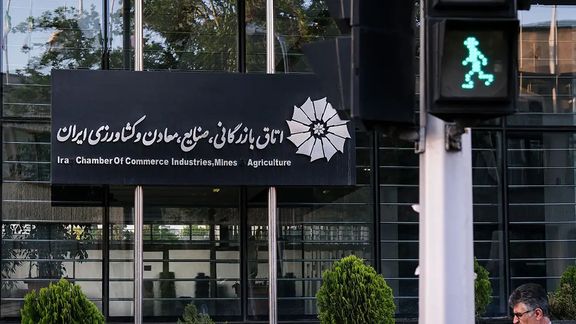
Conflicting reports about the removal of Iran’s Chamber of Commerce chairman indicate a push by hardliners to take control of the country’s private sector.
On Monday, state media reported that the head of the country’s Chamber of Commerce has been sacked after over four months of contentious relations with the hardliners in President Ebrahim Raisi’s administration, who rejoiced the development on social media. On Tuesday, the report was dismissed by the incumbent chairman himself, Hossein Salahvarzi, whose election in June was a manifestation of the growing divide between the hardliners and the businesspeople.
A large chunk of Iran's economy is controlled by the government and quasi-state foundations, where hardliners have a strong presence as managers with conflicting private interests.
The chamber is often referred to as the “private sector’s parliament” with over 400 members. The chairman's role is coordinating between the private sector and government and is sometimes required to participate in meetings with government officials. However, due to Salahvarzi’s critical views about the government's policies and performance, he was shunned by the administration and was never invited to any of meetings during the past four months, practically sidelining the private sector. The government also froze all its dealings with the chamber to force Salahvarzi out, and even published several fake news about his resignation during the past several months.
Although he won the election fair and square, obtaining 265 votes against 95 votes for Younes Zhaeleh, -- known to have close ties with the government -- the hardliners claim he was disqualified from running in the election by Iran’s Intelligence Ministry. However, the country’s judiciary approved the results of the election, and the parliament did not contest the results, and even the president himself only called for clarification on the issue.

Members of the chamber who are usually private businessmen have often criticized regime policies that have led to an economic crisis, including a confrontational foreign policy. The chambers often produce economic reports that the government finds embarrassing, or they criticize proposed budget bills and other plans.
The real development that occurred Monday was a session of a regulatory board of the chamber, which ended without any agreement, according to Salahvarzi’s post on X social media platform (formerly twitter).
Ali Shariati, a member of the chamber, described the media stunt about removal of Salahvarzi as “a coup against Minister of Industry, Mine, and Trade Abbas Aliabadi,” who holds the position since June. He claimed that the move was orchestrated by members of Iran’s ultra-hardliner Paydari (Steadfastness) Party, as a psychological operation to put pressure on Aliabadi, who does not belong to the group, but oversees the chamber. The party has its tentacles in all government institutions including the parliament where their members form a very influential minority that often takes a leading role amid the weak presence of established conservative and reformist parties. Shariati says the private sector will not allow the hardliners to engineer the elections and suppress the rule of law.
Hossein Marouf, another member of the chamber, told FarazDaily that chambers of commerce are advocacy organizations, explaining that the head of chambers should be part of the top-level government decision making and represent the private sector's demands. “When the government boycotts the chamber’s chairman and doesn't allow him to participate in meetings, there is no chance to effectively pursue demands.”
In the meantime, there is more bad economic news for the government. New reports indicate that the regime is not gaining revenues from its oil exports as much as it advertises, and its budget deficit will be twice as worse as that of the current year. The regime has reasons to muddy the data on its sanctions-hit income, but the parallel systems it has created during the years to circumvent international checks and balances have come back to bite its struggling economy.
Economist Mohammad Gholi Yousefi says Iran needs comprehensive economic reform to eliminate parallel institutions, allowing the private sector to have room for growth. He rejected the common belief that Iran’s economy will flourish if sanctions are removed, saying, “The problem is that we have a big government that intervenes in all affairs, disrupts the economic system, restricts the private sector, and even interferes in people's private lives. To achieve this significant change, amending the constitution is essential.”
Referring to another common belief that Iran’s accession to the Financial Action Task Force (FATF) will lift up the economy, he said, “So long as the constitution remains unamended and individual, social, and economic freedom are not seriously exercised, the lifting of sanctions and international agreements will not significantly contribute to the recovery of the economy.”

Hezbollah's leader met top counterparts from the Palestinian militant groups Hamas and Islamic Jihad to discuss what their alliance must do to "achieve a real victory for the resistance."
Part of Iran's regional network of proxy groups, the heavily armed Hezbollah has had daily exchanges of fire with Israeli forces along the Israeli-Lebanese frontier since war broke out between Israel and Hamas on October 7. However, Hezbollah has so far not opened a northern front against Israel, despite a heavy bombing campaign in Gaza against Hamas.
The meeting involved Hezbollah's Sayyed Hassan Nasrallah, Hamas deputy chief Saleh al-Arouri and Islamic Jihad chief Ziad al-Nakhala, Hezbollah said in a statement. It did not say when the meeting took place.
"An assessment was made of the international positions being taken and what the parties of the Axis of Resistance must do ... to realize a real victory for the resistance in Gaza and Palestinian and to halt the brutal aggression," Hezbollah said.
"There was agreement on continuing the coordination."
The United States, which has stationed two naval strike groups near Israeli and Lebanese waters, has warned Iran and Hezbollah not to expand the conflict.
Hezbollah announced on Wednesday that two more of its fighters had been killed, increasing the death toll in its ranks to 40 fighters since the start of the conflict.
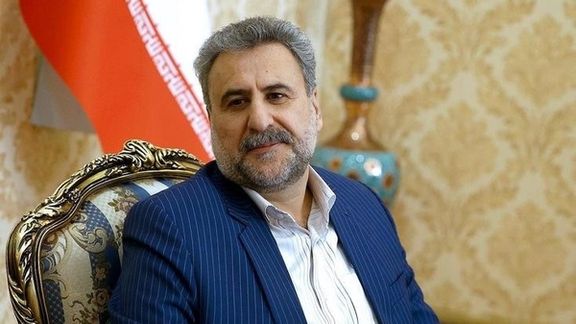
A former Iranian lawmaker has warned that "never before have the conditions for a war between Iran and the United States been as ripe as they are today".
Heshmatollah Falahatpisheh, known for his expertise in nuclear-related matters, made the claims amid an escalating conflict between Iran-backed Hamas and Israel.
The US has mobilized war ships and troops and vowed to do all it can to stand by its ally Israel in the face of a war declared by Hamas -- designated by the UK, US and EU — on October 7.
The former head of the Iranian Parliament's Foreign Policy and National Security Committee warned that such a war would not serve the interests of either nation. Instead, he proposed that both sides should engage in dialogue, suggesting that a 'red table' in Muscat, Oman, could provide a suitable setting for diplomatic negotiations.
Oman has a history of mediating between Western countries and the Islamic Republic. The country has successfully helped facilitate the release of several foreign citizens and dual nationals held hostage by Iran in the past.
Experts believe the key to preventing further regional conflict lies in how the US responds to recent attacks against its forces in the region, 13 attacks on US troops in Syria in just one week, and whether it holds Iran accountable for the actions of its proxies.
However, the central question posed is whether the US threat to intervene in the Hamas war on Israel and if its deterrence strategy are viewed as credible by Iran and its proxies. Hezbollah on Israel's northern border have continued to step up military attacks while the Houthis in Yemen have begun to send missiles towards Israel, intercepted by Saudi Arabia and the US.
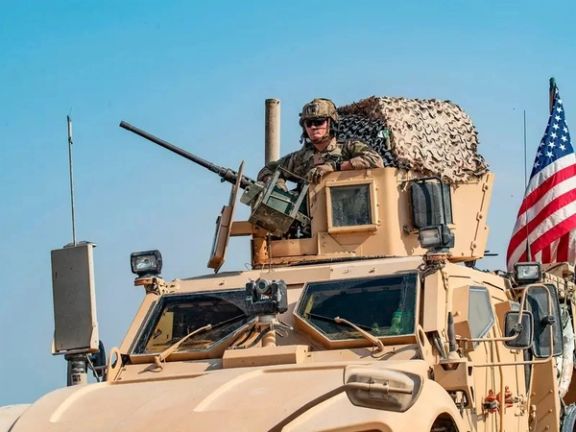
American forces in Iraq and Syria have come under attack on at least 13 occasions over the past week, the Pentagon has confirmed, by militant groups armed by Iran.
In a statement Tuesday, Pentagon's press secretary Brig. Gen. Pat Ryder said the incidents occurred between October 17 and October 24 and involved a combination of one-way attack drones and rockets.
In just one day (October 18), according to US Central Command, 20 American servicemen were injured in a drone attack on Al-Tanf military base in Syria and 4 more in a another drone attack on Al-Asad Airbase in Iraq.
The Department of Defense has so far not attributed these attacks to Iran, but officials have stated that there are "Iranian fingerprints all over it".
It is an open secret that the Islamic Republic Guards Corps (IRGC) plays a prominent role in both Iraq and Syria, funding and equipping various proxies. Iranian officials regularly boast about the IRGC’s ‘reach’ in the region.
The IRGC’s Quds force, responsible for overseas operations, has a history of proxy war with American forces in the Middle East. This latest round has arisen in the wake of Israel’s bombardment of Gaza, which began October 7 when Hamas militants launched a terror raid into southern Israel.
The Pentagon has toughened its tone against the Iranian regime in the last few days. Brig. Gen. Ryder said on Monday that the US would hold Iran ultimately responsible for the attacks in Iraq and Syria.
However, the Biden administration still seems to be reluctant to retaliate, fearing to get itself bogged down in a prolonged and costly regional war that would further destabilize the Middle East.
And this has enraged more than a few lawmakers in Washington.
“Obama and Biden both thought they could appease Iran with billions of dollars. They were wrong,” said Senator Ron Johnson to Fox News Tuesday. “We need to recognize Iran for the malign force it is in the world and stop handing them billions.”
Senator Marsha Blackburn seconded this sentiment. “Biden’s non-response will only incentivize Iran to continue attacking our troops,” she posted on her X account Tuesday night.
Responding to the growing threats against US forces in the region, President Joe Biden ordered two aircraft carrier strike groups and anti-missile defense systems to be deployed to the region. Defense Secretary Lloyd Austin has also issued prepare-to-deploy orders for a number of forces to respond to any aggressions. US had also sent additional naval forces to the Persian Gulf in July to deter Iran from harassing commercial shipping.
“We will always maintain the inherent right of self-defense,” Brig. Gen. Ryder said, “and if there is a response, should we choose to have one, we would do that at a time and place of our choosing.”
The US government is under increasing Congressional pressure to respond to the targeting of its forces in Iraq and Syria. It’s not clear if the American public agrees. It probably will, however, if the attacks on US forces were to continue and especially if American lives were to be lost.
“We need to be striking back,” said Senator Chris Coons to Fox News Tuesday evening, “and we need to be prepared for the very real prospect that this will get harder before it gets easier.”
Senator Coons is a close ally of President Biden. He was shortlisted for Secretary of State alongside Blinken.
The Biden administration has so far avoided military engagement with the IRGC and its proxies in the region. But things could change if Israel goes ahead with its planned ground invasion of Gaza and draws in other actors like Hezbollah to the war scene.
Nearly 6,000 Palestinian have died in Israel's air campaign in Gaza since the October 7 terrorist raid, which killed 1,400 Israelis, mostly civilians.
International calls for unimpeded aid to Palestinians in Gaza intensified Tuesday. The United States and Canada joined almost every other country in the United Nations to appeal for a “humanitarian pause” to get aid to civilians in Gaza.
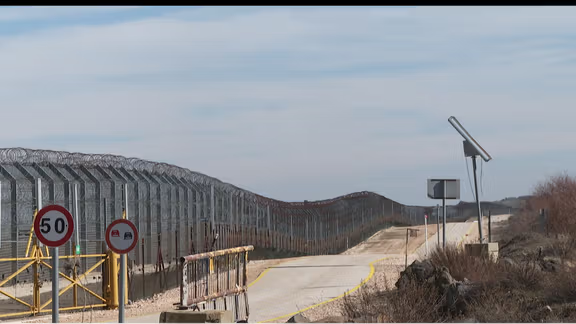
Israel's military said its jets struck Syrian army infrastructure and mortar launchers early on Wednesday as a response to rocket launches from Syria toward Israel.
The military said it had identified two rocket launches from Syria that had landed in open areas late on Tuesday, and that it had responded with artillery fire at the sources of the launches.
In a further response, the military said its fighter jets "struck military infrastructure and mortar launchers belonging to the Syrian Army".
The military did not provide further details. It did not accuse Syria's army of firing the two rockets, which set off air raid sirens in the Israeli-occupied Golan Heights on Tuesday.
Israel has twice attacked the international airports in Syria's capital Damascus and its second largest city Aleppo since the October 7 Hamas terror raid into southern Israel. These attacks are believed to be aimed at preventing Iranian military aid from reaching Syria and ultimately the Lebanese Hezbollah.
Israel has been regularly attacking Iranian and Hezbollah targets in Syria since 2017 to prevent Iranian entrenchment and weapons transfers to the Lebanese militant group.